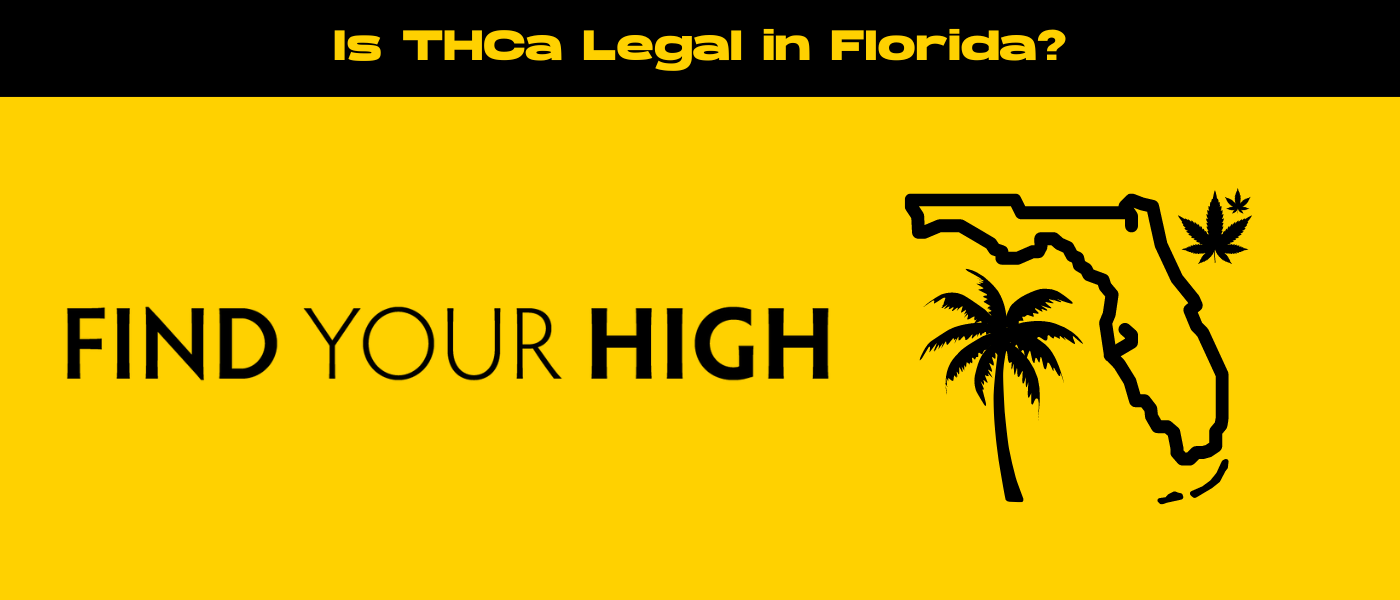Whether you’re traveling to the Sunshine State soon or you’re a Florida native, you may wonder, “Is THCa legal in Florida?’
THCa, also known as Tetrahydrocannabinolic acid, is a non-psychoactive cannabinoid present in fresh cannabis plants before they’re dried. When it goes through decarboxylation, either naturally during drying or with added heat, THCa changes into the psychoactive compound, THC (Delta-9-tetrahydrocannabinol).
While THC is renowned for its “high,” THCa is known for its potential therapeutic effects, such as reducing inflammation and nausea, without the intoxicating impact.
In Florida, the legal status of THCa is hazy; as a non-psychoactive precursor, it’s not regulated as strictly as THC, leading to debates and legal challenges on the state’s controlled substances policies.
This confusion is further intensified by the evolving cannabis laws and public perception surrounding cannabis-related products, which is exactly what we’ll explore in today’s blog. Let’s begin!
Understanding the Florida Cannabis Laws
Florida’s cannabis laws have a complex and ever-changing history. Initially, all forms of cannabis were completely illegal, mirroring the national prohibition stance at the time.
However, change began to take root in 2016 with the approval of the Florida Medical Marijuana Legalization Initiative, also known as Amendment 2. This law marked a significant shift, allowing those with qualifying medical conditions access to medicinal cannabis products.
The way things currently stand with cannabis in Florida is like a split road: medical marijuana is okay for registered patients, but if you’re looking for some recreational fun, that’s a no-go. However, talk of full legalization keeps popping up in Florida’s legislative initiatives, showing an evolving shift in the state’s cannabis regulations.
THCa and Federal Law
At the federal level, THCa sits in a somewhat complicated legal intersection due to the 2018 Farm Bill. This important piece of legislation differentiated hemp from marijuana by its THC content and legalized hemp that contains less than 0.3% THC on a dry weight basis.
However, since THCa can potentially convert to THC, its status is complex. The Bill doesn’t explicitly mention THCa, leading to legal loopholes for hemp-derived THCa.
The Drug Enforcement Administration (DEA), on the other hand, maintains its classification of THCa as a Schedule I substance under the Controlled Substances Act when it is purposefully decarboxylated into psychoactive THC. But, in its raw form, hemp-derived THCa is not a controlled substance. See how this could get a bit complicated?
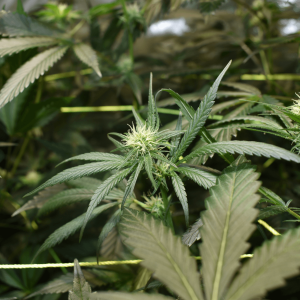
Differentiating Between Types of Cannabinoids
Cannabinoids are natural compounds found in the cannabis plant. Out of the 100+ cannabinoids, the famous ones are THC and CBD.
But, believe it or not, there’s a whole range with different psychoactive effects to explore:
Psychoactive Cannabinoids: These are compounds that can affect the mind, emotions, and behavior. The most recognized one is THC, which can induce a “high,” but others include:
- THC (Delta-9-tetrahydrocannabinol)
- Delta-8-tetrahydrocannabinol
- CBN (Cannabinol) when present in high doses
Non-Psychoactive Cannabinoids: These do not produce a “high” and are typically known for their therapeutic effects. They include:
- CBD (Cannabidiol)
- CBG (Cannabigerol)
- CBC (Cannabichromene)
The Place of THCa in the Cannabinoid Spectrum
THCa, or Tetrahydrocannabinolic acid, is in a unique position within the cannabinoid spectrum. Therefore, it deserves its very own section.
As a non-psychoactive cannabinoid, it doesn’t produce the classic cannabis “high” associated with THC. Despite this, its close relationship to THC — being its precursor — adds layers to its legal status and potential health benefits.
Unlike its decarboxylated counterpart (THC), THCa supports potential health benefits without psychoactive effects, aligning it closer to cannabinoids like CBD in terms of user experience.
However, due to its natural transformation into THC upon decarboxylation, the legal landscape remains complex, and its position in the cannabinoid spectrum continues to be a subject of legal, medical, and societal scrutiny.
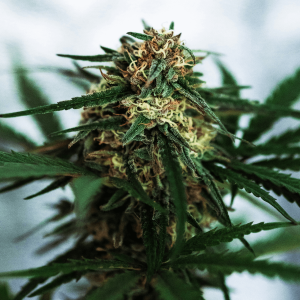
The Legal Nuances of THCa in Florida
Understanding Florida THCa laws involves grasping state laws and their intersection with federal regulations.
Within the state’s legal framework, THCa is not explicitly mentioned as separate from THC under the Florida Comprehensive Drug Abuse Prevention and Control Act. This means that although marijuana-derived THCa is not psychoactive, it can often be treated in the same way due to its potential to convert into THC.
Hemp-derived THCa, on the other hand, is legal so long as it falls within the parameters of a 0.3% THC content post-decarboxylation.
The Controlled Substances Act and THCa in Florida
The legality of THCa depends on how the state interprets the Controlled Substances Act.
When state laws align with federal guidelines, things can get tricky due to THCa being non-psychoactive, unlike the THC it can turn into.
Is THCa Legal in Florida?
The answer isn’t just a simple “yes” or “no.” In Florida, the law doesn’t clearly state the legal status of THCa on its own, separate from THC.
Basically, THCa itself isn’t psychoactive and isn’t explicitly banned, but the possibility of it turning into THC makes its legal position uncertain for those without a medical card.
So, in legal cases, it often comes down to whether THCa is being used with the intention of becoming THC. If you’re considering THCa in Florida, it’s wise to be cautious and keep up with the latest legal updates.
How Florida Law Treats Hemp-Derived Products
Following federal footsteps, Florida’s legislation distinguishes marijuana from hemp based on the THC content, with hemp legally defined as containing less than 0.3% THC on a dry weight basis.
This distinction is super important for the legality of hemp-derived products, including those with THCa.
Legal Distinctions Between Marijuana and Hemp in Florida
The Sunshine State has recognized these distinctions by legalizing hemp and, by extension, opening a door for hemp-derived THCa products.
Nevertheless, this does not fully extricate THCa from legal scrutiny due to its relation to THC.
Is THCa Legal in Florida? – The Impact of Hemp-Derived THCa Legality
The rise of THCa products from hemp in the market has shone a light on the complexities of its legal status.
Without intoxicating effects, these products often find themselves on the shelves, but consumers, retailers, and law enforcement must navigate the implications of its unclear position – at once legal as a hemp derivative but potentially illicit once converted to THC.
The result is an ongoing conversation about regulations on cannabinoids, a legal field evolving with our knowledge of cannabis and its derivatives.
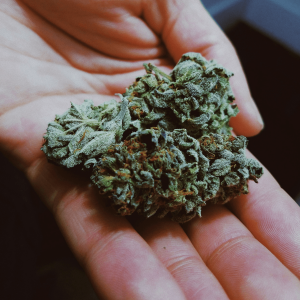
Medical Marijuana and THCa
When we talk about access to medical cannabis in Florida, it’s key to recognize what THCa brings to the table in the state’s program. Patients seeking medical marijuana in Florida might come across THCa as a treatment option, but there are some nuances to consider.
As a non-psychoactive form of THC, THCa flower has the potential for medical benefits without the high, which can be attractive to patients looking for the healing side of cannabis.
Florida has made medical marijuana part of its healthcare offerings, giving patients with various conditions access to different cannabis products, including those with THCa. This widens the range of treatment options available, aligning with the increasing research on cannabinoids and their medical uses.
But the legal complexity around THCa and hemp plants could impact how easily these products are accessible and regulated under Florida’s medical marijuana program.
Possession Limits and Legal Consequences in Florida
In Florida, the rules on possession limits for THCa are often tied to those for THC, making it essential to distinguish the source of the THCa—whether it is derived from marijuana or hemp.
For hemp-derived THCa, compliant with the 0.3% THC threshold, possession limits are generally not enforced, reflecting the legal status of hemp. However, when it comes to marijuana-derived THCa, possession is subject to the state’s cannabis laws.
Patients registered in the Florida Medical Marijuana Use Registry are allowed to possess an amount of medical marijuana, including THCa, that does not exceed a 70-day supply. For those without a medical prescription, possession of more than 20 grams of marijuana-derived THCa is a felony, potentially leading to severe legal consequences.
Is THCa Legal in Florida? – The Debate Around Recreational Use of THCa
The debate on THCa for recreational purposes is complex, just like the cannabinoid itself.
Supporters say THCa’s non-psychoactive quality could be a safer THC option, offering cannabis benefits without the high. It’s seen as a good choice for those after relaxation and well-being boosts without the buzz.
On the other hand, critics worry about the lack of long-term research and the chance THCa could turn into psychoactive THC. As public views on cannabis change, lawmakers have to juggle personal freedom with safety concerns.
Ultimately, the legal fate of THCa is a big deal, likely to be shaped by ongoing talks and shifting attitudes.
What Floridians Need to Know About THCa
For Florida stoners dealing with the ins and outs of THCa, knowing the laws is crucial.
It’s important to grasp that hemp-derived THCa is okay if it stays under the 0.3% THC limit after processing, but weed-derived THCa falls under stricter cannabis rules. Holding marijuana-based THCa without a medical script can lead to serious legal trouble.
Floridians should also understand the details about medical marijuana and how THCa could benefit patients seeking non-psychoactive treatments. Keeping up with THCa rules as they change and new studies come out will be vital for anyone in or eyeing Florida’s cannabis scene and market.
Conclusion: The Complex Landscape of THCa Legality in Florida
As we’ve explored, the legal status of THCa in Florida is a bit complex.
The state’s distinction between marijuana and hemp-derived THCa presents a legal contradiction, where the non-intoxicating hemp-derived THCa is permissible under certain conditions, while its marijuana counterpart remains more strictly regulated.
Floridians dealing with this tricky legal landscape should be careful, especially with the changing cannabis laws. Moving forward, both users and lawmakers need to stay alert and well-informed as the discussion on THCa progresses, which could alter the legal scene affecting access, medicine, and recreational use.
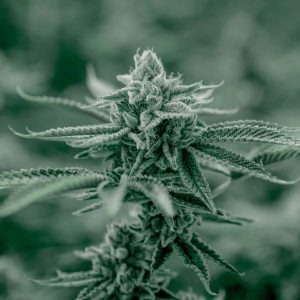
Frequently Asked Questions
1. Is THCa legal in Florida?
In Florida, the legality of THCa depends on its source. Hemp-derived THCa with less than 0.3% THC on a dry weight basis is legal following the state’s hemp legislation. However, marijuana-derived THCa is subject to the state’s more stringent cannabis laws and is only legal for registered patients within the Medical Marijuana Use Registry.
2. Is THCa legal in all states?
The legality of THCa varies by state. In states with legalized medical or recreational marijuana, THCa is typically legal within the confines of those regulations. States that adhere solely to federal law recognize hemp-derived THCa as legal if it contains less than 0.3% THC, in accordance with the 2018 Farm Bill, which made hemp federally legal.
3. Do drug tests look for THCa?
Most standard drug tests are designed to detect THC, not THCa. However, since THCa can convert to THC when exposed to heat or when stored over time, there is a potential for THCa to contribute to a positive THC drug test result. It is crucial to understand that the specifics of drug testing can differ between testing methods and regulatory bodies.
4. Is THCa a controlled substance?
As of the latest legislation, hemp-derived THCa is not a controlled substance under federal law as long as it contains less than 0.3% THC. However, THCa derived from marijuana is considered a controlled substance in states where marijuana is illegal, highlighting the importance of understanding the nuanced differences between hemp and marijuana derivatives within the legal frameworks.
5. Is THCa the same as Delta 9 THC?
THCa and Delta 9 THC are related but distinct compounds found in the cannabis plant. THCa is the non-psychoactive acid precursor to Delta 9 THC, which is the main psychoactive component responsible for the “high” associated with cannabis use. When THCa is exposed to heat or UV light, it undergoes decarboxylation and converts into Delta 9 THC. So, while they are chemically related, THCa and Delta 9 THC have different properties and effects.

 Rewards
Rewards




